With the rise of Nazi ideology, the world witnessed its darkest times. From a country being completely engulfed by the satanic war crimes to countless people dying under the belief of “purity”, it’s no secret that the devil itself had descended onto the Earth.
While there is no way that such dark times can be comprehended by our imagination, various filmmakers have tried to pen down the thoughts of humanity in this horrendous era. While some have been able to comprehend and spawn inspirational cinematic creations, others have failed to do so. However, these films have showcased the age of Nazism with cinematic beauty. These films do not necessarily reinvent the event of Holocaust, as there is a separate list for that, but produce the artwork commenting upon war, death, loss and sadness. It’s imperative to understand that while some movies might be superior cinematically, the ranking is based on their observation and induction of Nazi themes and not the pure cinematic allegories. So, without further ado, here is the list of top movies Nazi movies ever. You can watch some of these Nazi movies on Netflix, Hulu, or Amazon Prime.
12. Judgment at Nuremberg (1961)
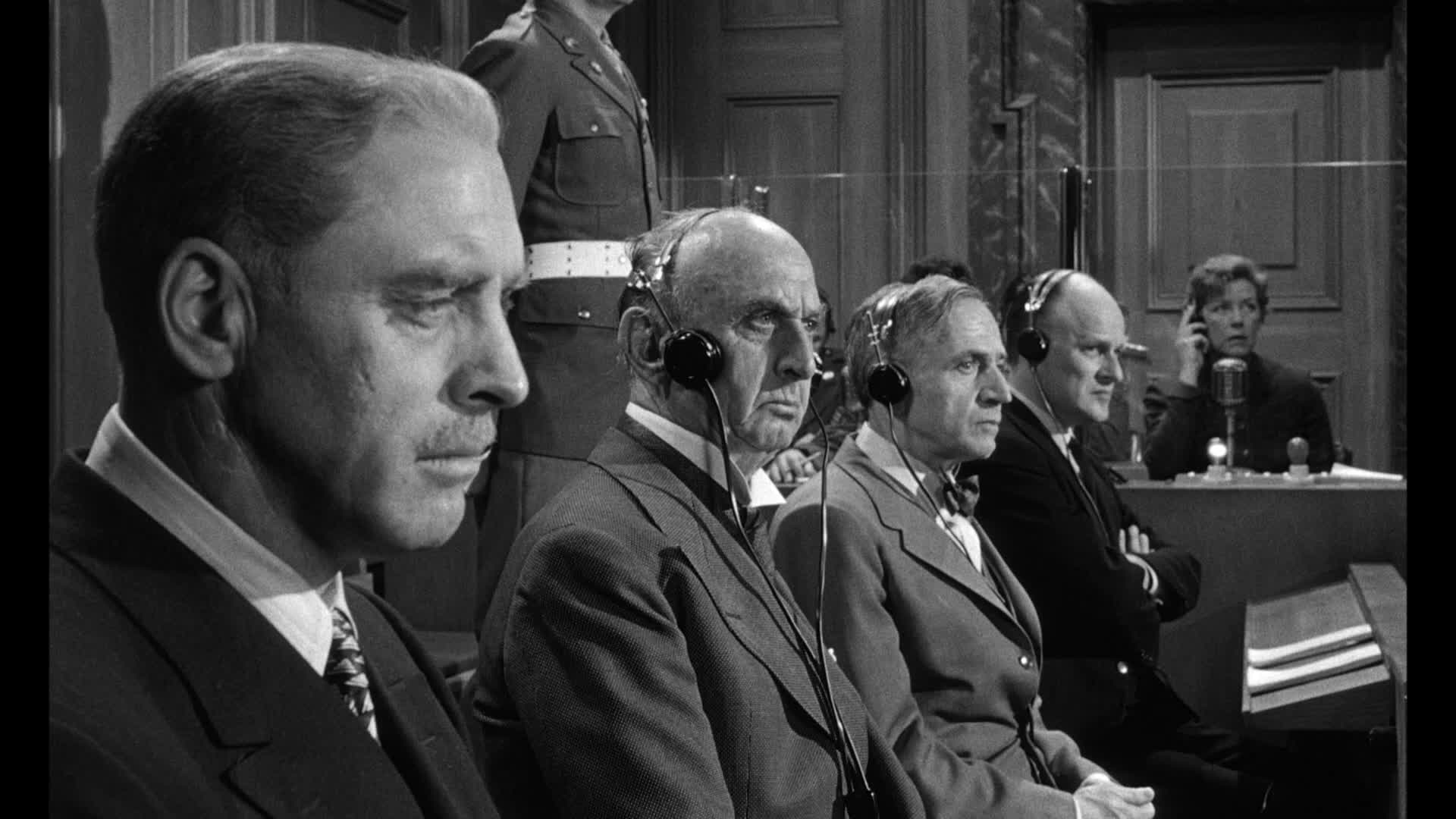
Directed by veteran director Stanley Kramer, ‘Judgment at Nuremberg’ portrays a fictionalized version of the Judges’ Trial of 1947, which was one of the twelve U.S. military tribunals during the Subsequent Nuremberg trials. The film is led by the brilliant performances of the leading cast and Kramer’s direction elevated the film’s courtroom atmosphere. The film balances the humanistic and philosophical ideas of the director and the authoritarian aura of a courtroom drama. The films intrinsic take on the subject matter and exceptional performances by the cast immense critical success, with the film winning several prestigious awards, including 2 Academy Awards, 2 Golden Globes and an induction in the American Film Institute’s “tenth best film in the courtroom drama genre”.
Read More: Best Skateboard Movies of All Time
11. Mephisto (1981)
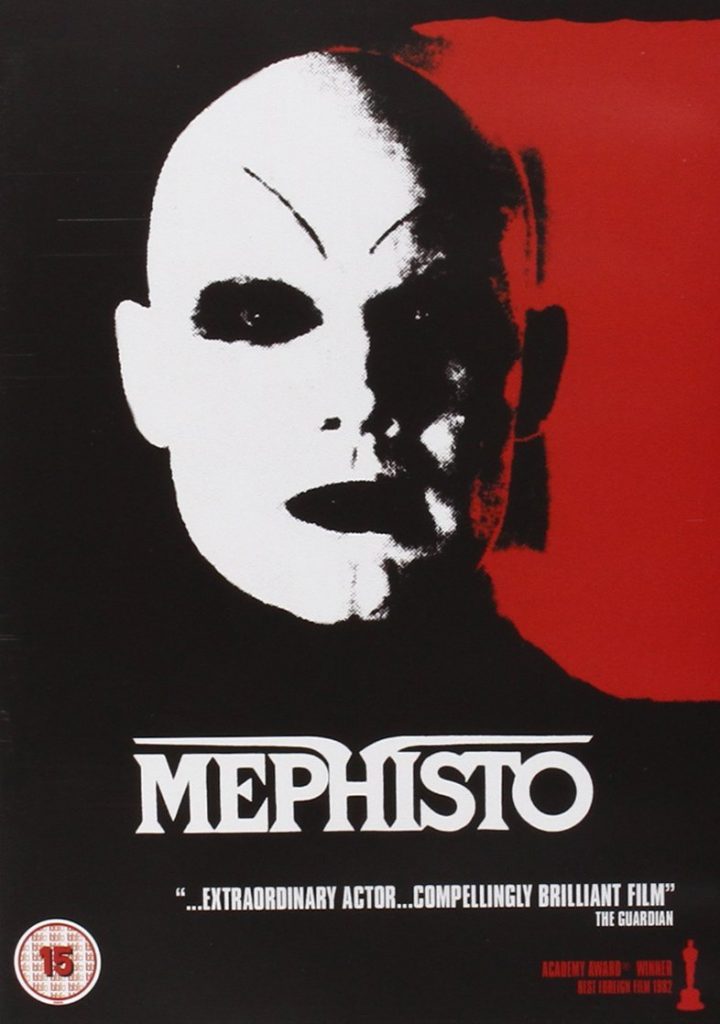
The first Hungarian film to win the award for ‘Best Foreign Language Film” at the Academy Awards, ‘Mephisto’ follows a German stage actor, who finds unexpected success and mixed blessings in the popularity of his performance in a Faustian play as the Nazis take power in pre-WWII Germany. As his associates and friends flee or are ground under by the Nazi terror, the popularity of his character supersedes his own existence until he finds that his best performance is keeping up appearances for his Nazi patrons. The film resonates with inspiration and innovation. Directed by István Szabó, ‘Mephitso’ is a comment on the Nazi exploits which had an influence on the human psyche. With a cohesive screenplay written by trio Péter Dobai, Klaus Mann and István Szabó, and a commanding cinematography by Lajos Koltai and an echoing background score by Zdenko Tamassy.
Read More: Best Boarding School Movies of All Time
10. Life Is Beautiful (1997)
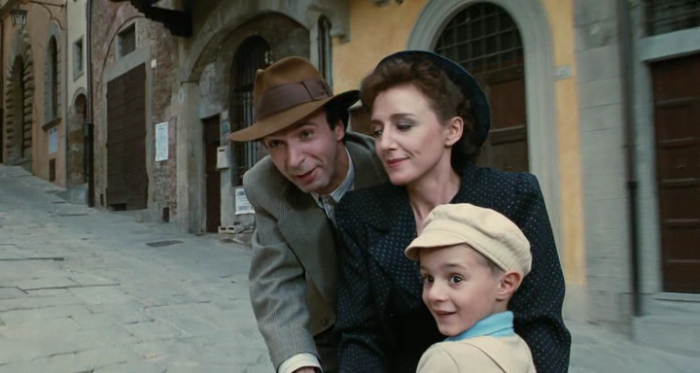
A distinctive take on the Nazi concentration camp, ‘Life Is Beautiful’ or ‘La vita è bella’ is an Italian comedy-drama traces the lives of a Jewish librarian and his son who upon getting apprehended by the Nazis, uses humour to protect his son from the dangers around their camp. Directed by Roberto Benigni, the film explores the themes of willpower, fantasy and innocence in one of the most torturous times of human history. Starring the director himself as the caring libertarian Guido Orefice, the film is spearheaded by his comedic sensibilities.
The narrative set alongside Benigni, is written by Vincenzo Cerami, which is adapted from Rubino Romeo Salmonì’s ‘In the End, I Beat Hitler’ with absolute dexterity. Adding to the art is Nicola Piovani’s stunning music which complements the witty comedic timing and the grief which seeps through the glacial demise. Tonino Delli Colli’s vivid cinematography captures the little intricacies of the concentration camp settings with commendable technique and vision.
Read More: Best Anthology Movies of All Time
9. The Great Dictator (1940)
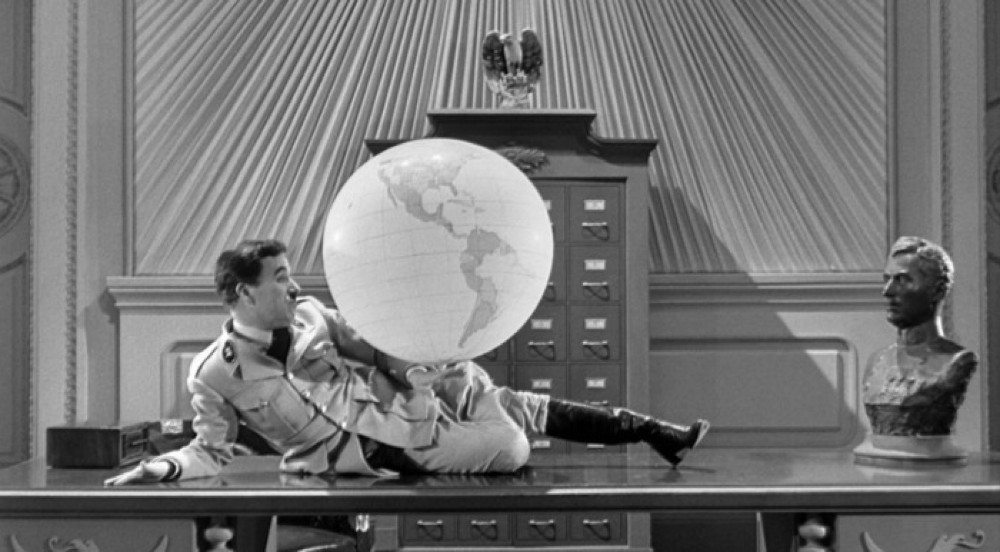
A part of Charlie Chaplin’s transition into sound films, ‘The Great Dictator’ brought together stinging satire and parody to the genre of “Nazi films”. Produced during a time when the Holocaust’s atrocities were yet to be scrutinised, the film did receive several criticisms for Chaplin’s seemingly comical take on the subject matter. However, the 1940 flick stings with political allegory and satire which comments upon the strict regime and inhumanity which seeped through the vein of the country. Essaying the roles of a Jewish barber in the ghetto and Adenoid Hynkel, Dictator of Tomania which is a parody of Germany and Adolf Hitler, the film traces their identities and interweaves it with Chaplin’s point-on comedy. A critical and commercial success, the film is considered as one of the most important works of satire went on to be selected by the Library of Congress for preservation in the United States National Film Registry.
Read More: Best Crusade Movies of All Time
8. Au revoir les enfants (1987)
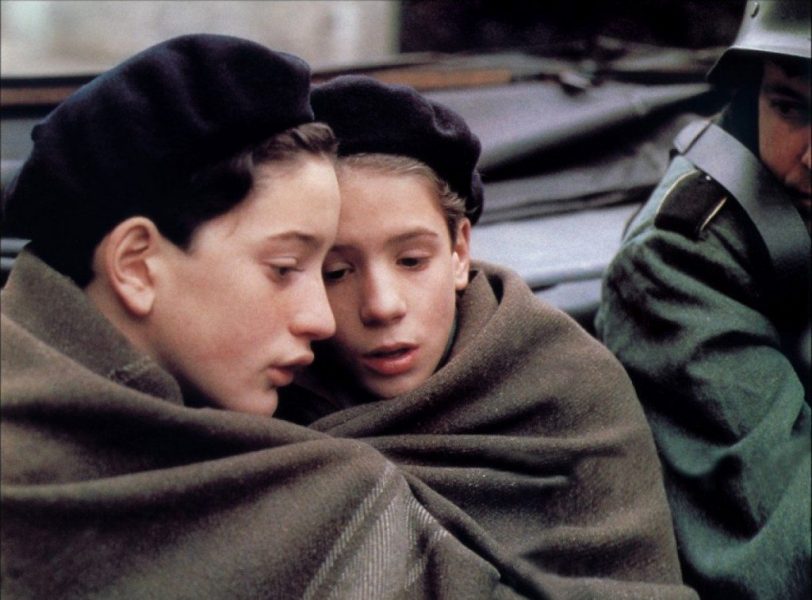
An autobiographical film, ‘Au revoir les enfants’ follows the bond two students share at a boarding school in Nazi-occupied France when one gets to know that the other is a Jew hiding from the Nazi soldiers. Directed and written by Louis Malle, the film explores the harrowing realities of the regime and the innocence which is torn apart by the political propaganda. Starring Gaspard Manesse as Julien Quentin and Raphaël Fejtö as Jean Kippelstein, the 1987 flick perfectly captures the childlike bliss and undying friendship in the horrors of war.
The descriptive cinematography by Renato Berta captures the polluted administration and the poisoned academic institutions which were governed by the unscrupulous Nazi government. The film’s innovative and heartening take on youth and friendship was a critical and commercial success. With the articulate screenplay published by the esteemed “Gallimard” and the film winning 7 César Awards, ‘Au revoir les enfants’ went on to cement itself as one of the most important movies about Nazism.
Read More: Best Stripper Movies of All Time
7. Downfall (2004)
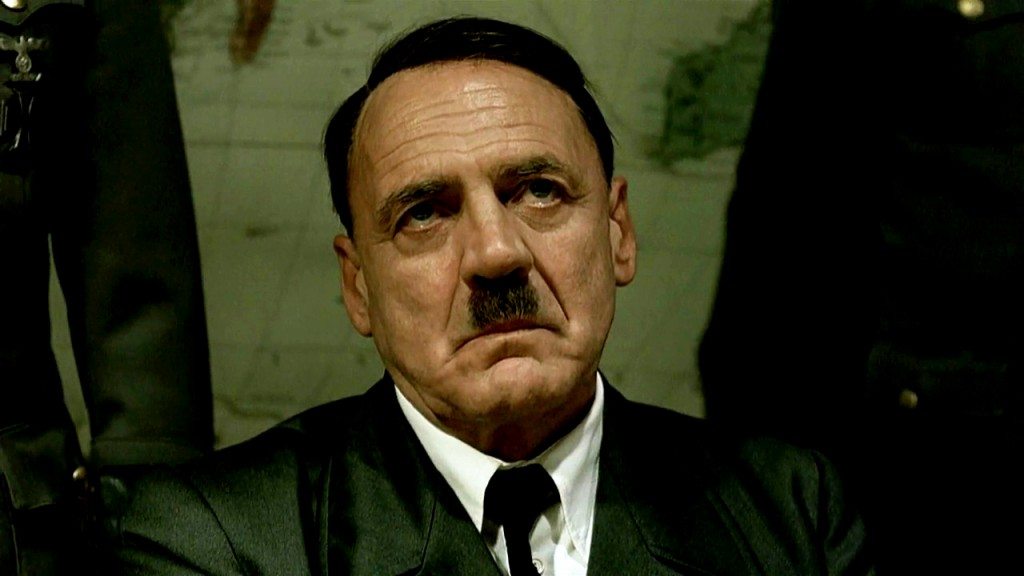
Starring Bruno Ganz as Adolf Hitler, ‘Downfall’ or ‘Der Untergang’ traces the memories of Alexandra Maria Lara’s Traudl Junge, the final secretary for Adolf Hitler who tells of the dictator’s final days in his Berlin bunker at the end of WWII. Directed by Oliver Hirschbiegel, the film adapts novels ‘Inside Hitler’s Bunker’ (1945) written by Joachim Fest and ‘Until the Final Hour’ (1947) written by Traudl Junge and Melissa Müller into the cinematic representation. A literal take on the title, the film is conceived from the perspective of Junge, who expresses her shame and guilt of admiring Hilter in her youth. Written by Screenplay by Bernd Eichinger, the film bases itself on the characters rather than exclusively catering to the plot or the narrative. This did come at a cost though, with several critics of film magazines and newspapers questioning the director’s choice of showcasing Hitler’s “humane” side.
The film is comfortably established on the firm shoulders of actor Bruno Ganz, whose research work and studies on the dictator’s lifestyle, speech and body language paid off in a stunning performance. The innovative take on the horrifying tyrant earned the film a gamut of praise from researchers, biographers and film critics.
Read More: World War 2 Movies
6. Das Boot (1981)
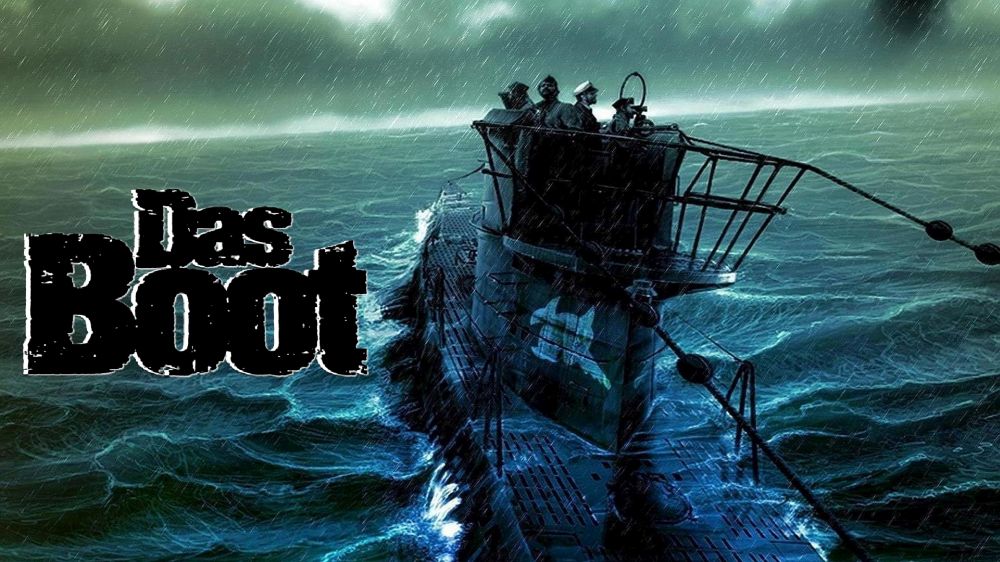
A German war film, written and directed by Wolfgang Petersen, ‘Das Boot’ chronicles the tumultuous World War II through the fictional story of U-96 and its crew. Personifying fear, exhilaration, sadness and power, Peterson masterfully portrays a sense of claustrophobia and time liquidity. Brimming with technical brilliance, the movie is completely enmeshed in the ideology of war, destruction and melancholy. The World War background allows the horrific reality to creep in the veins of the viewers and the fictitious story helps the director mould their emotional moral foundation.
While the film wasn’t an instant financial success, it went on to gain the critical claps and earned six Academy Award nominations, a BAFTA Award and DGA Award. Through the passage of time, Petersen’s nifty work seasoned as one of the greatest films of all time.
Read More: Best Myanmar Movies of All Time
5. Casablanca (1942)
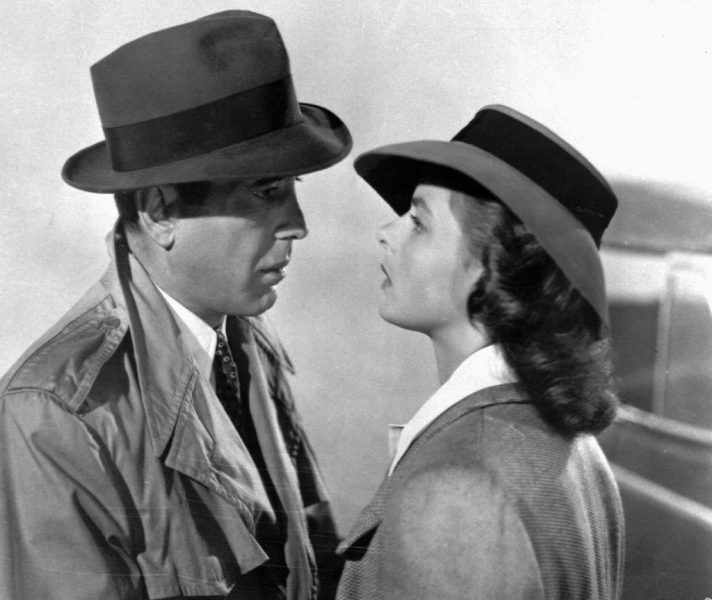
Cited as being one of the greatest movies in world cinema, ‘Casablanca’, set during contemporary World War II, focuses on American expatriate Rick Blaine, essayed by Humphrey Bogart, who must choose between his love for a woman and helping her and her husband, a Czech Resistance leader, escape from the Vichy-controlled city of Casablanca to continue his fight against the Nazis. The film resonates with inspiration and redemption. Directed by Michael Curtiz, ‘Casablanca’ is characterized by sociological concepts, and analyses social class, race, sacrifice and many others. With a cohesive screenplay written by trio Julius J. Epstein, Philip G. Epstein and Howard Koch, the film is adapted from ‘Everybody Comes to Rick’s’ written by Murray Burnett and Joan Alison. Adding to the film’s iconic status are the masterful cinematography by Arthur Edeson and an echoing background score by Max Steiner.
With 3 Academy Awards and gamut of memorable character, moments and visuals, ‘Casablanca’ went on to redefine the art and establish itself as one of the greatest creations of world cinema.
Read More: Best Psychological Thrillers of All Time
4. Army of Shadows (1969)
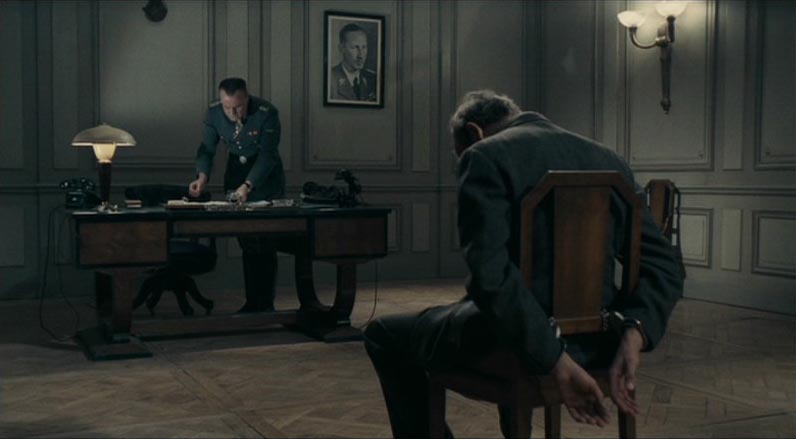
Directed by Jean-Pierre Melville, ‘Army of Shadows’ or ‘L’armée des ombres’ traces the lives of underground resistance fighters in Nazi-occupied France. Shot as a documentary, the film portrays the intertwining stories of several members of the French resistance. Defying any sort of genre categorization, the film infuses a thriller, a spy story and a heroic journey. While the film portrays its characters as heroic, the film presents a bleak, unromantic view of the Resistance. While the measured approach of perceiving Nazi-occupied France could’ve been annoyingly tedious, the film’s unabashed take on the Nazi abuses elevated it to a commendable piece of art.
With such a brazen approach came enormous criticism though. French critics denounced the film for its perceived glorification of Charles de Gaulle, and as a result, it completely failed at the box-office and did not get a worldwide release. However, in the mid-1990s “Cahiers du cinema” published a reappraisal of the film, leading to its restoration and re-release in 2006. It ultimately redeemed itself and has since been adulated as one of the best works in world cinema.
Read More: Longest Movies of All Time
3. The Pianist (2002)
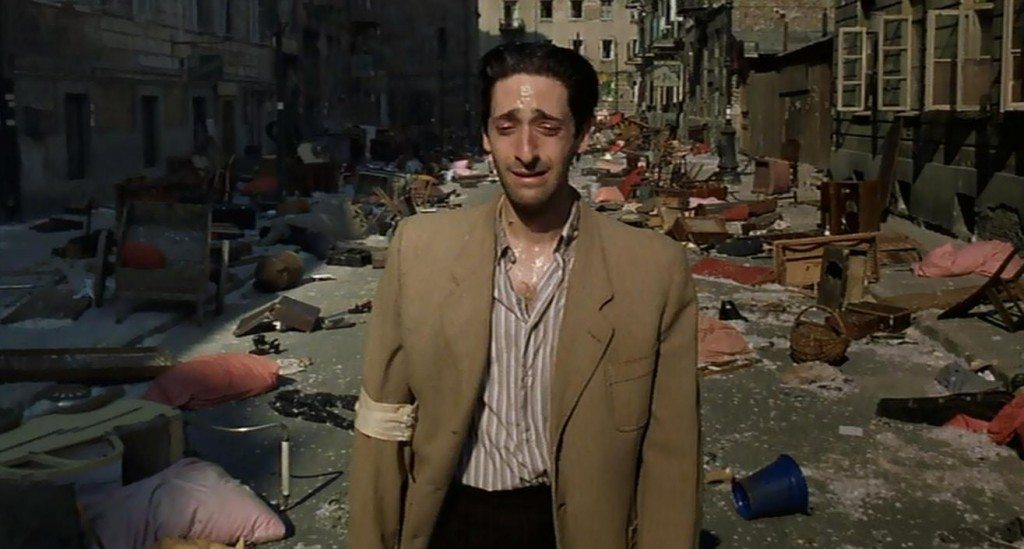
It requires a level of wizardry to amalgamate the warmth of music and the horrors of Nazi exploits. Roman Polanski is a wizard. A biographical drama, ‘The Pianist’ follows the story of Polish Jewish musician Władysław Szpilman, essayed by Adrien Brody, and his struggles to survive the destruction of the Warsaw ghetto of World War II. Based on the memoir of the aforementioned pianist, the film sets the art with war in parallel and showcases the haunting reality. Adapted by writer Ronald Harwood, the screenplay is a poetic beauty. The melancholic aura acts as a character and lays the foundation for Szpilman’s artistic creations and the tragedy which seeped through Germany.
Complementing the director and writer are Wojciech Kilar, whose background score sent chills down the spine and Paweł Edelman’s cinematography which personified the fear of humanity with poignancy. The film received ginormous critical praise, with it winning the “Palme d’Or” at the Cannes Film Festival, 3 Academy Awards for “Best Actor in a Leading Role”, “Best Director” and “Best Writing, Adapted Screenplay”, 2 BAFTA Awards for “Best Film” and “Best Direction”, and 7 French Césars, including “Best Picture”, “Best Director” and “Best Actor”, to name a few.
Read More: Best Polish Movies of All Time
2. Shoah (1985)
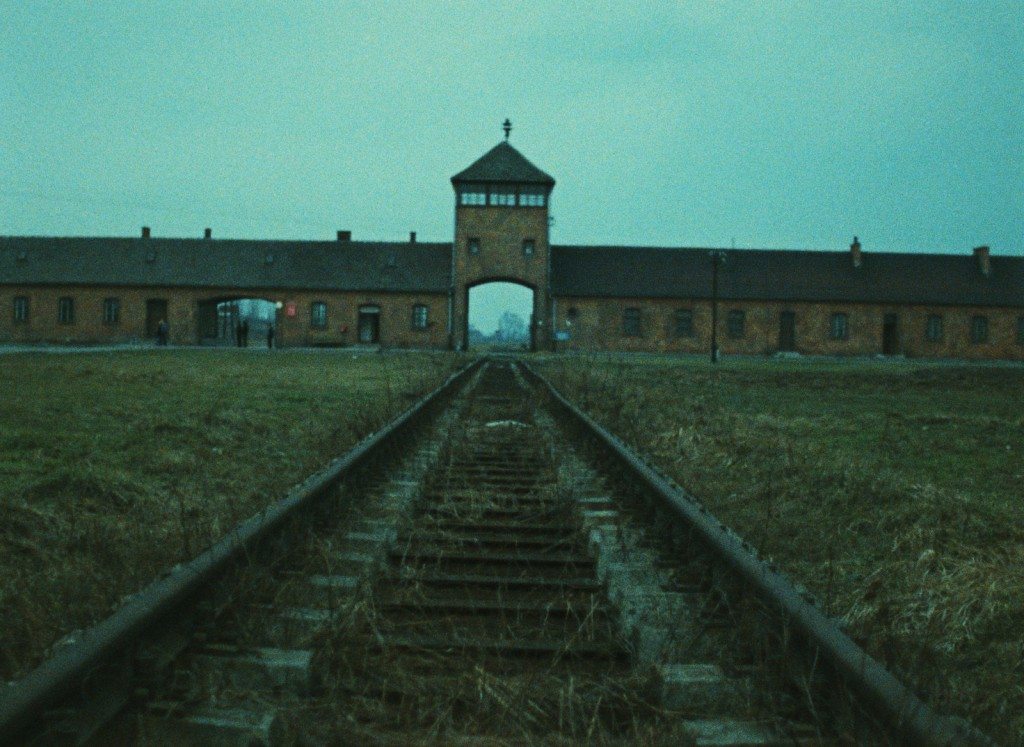
A French documentary, ‘Shoah’ presents director Claude Lanzmann’s interviews with survivors, witnesses and perpetrators during visits to German Holocaust sites across Poland, including extermination camps. What makes this such an important film documenting the Nazi atrocities is the atmosphere of personal interaction Lanzmann created between his work and the audience. The 1985 documentary cerebrally presents the trauma the Holocaust survivors went through and how their lives were influenced and governed by it.
The cinematography team consisting Dominique Chapuis, Jimmy Glasberg, Phil Gries and William Lubtchansky does a remarkable job in focussing on the interviewees rather than the interviewer and captures their emotions and sentiments. However, Lanzmann’s efforts catapulted the film into a sensation with his brilliant research skills. The director not only manages to capture the survivors, but also the men responsible for this destruction. The collective efforts of the team earned the flick immense praise, with some even calling it as “the greatest documentary about contemporary history ever made”. The film was hailed as a masterpiece by several respected critics such as Richard Brody, François Mitterrand and Roger Ebert, to name a few.
Read More: Best Foreign Action Movies of All Time
1. Schindler’s List (1993)
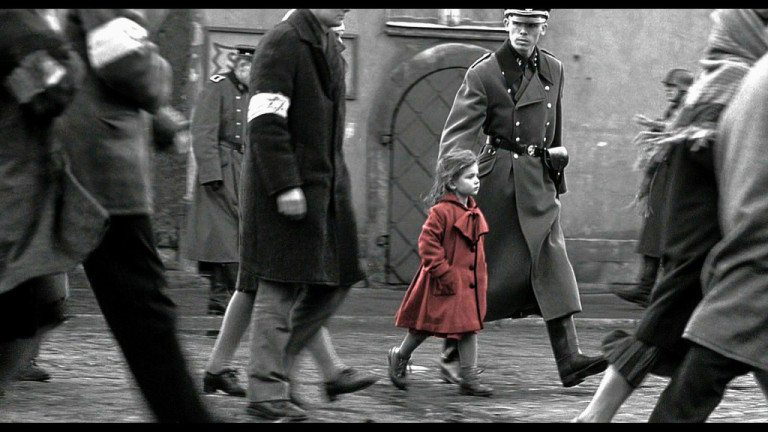
The Nazi regime has been documented as one most atrocious, torturous and heart-breaking time of the human history. However, the struggle was not just about the political propaganda. It was about the inner tussle of standing up against such a horrifying reality, and Steven Spielberg struck the chord with elegance and eloquence.
Starring Liam Neeson as Oskar Schindler, the film chronicles his historic feat of saving the lives of more than a thousand mostly Polish-Jewish refugees from the Holocaust by employing them in his factories during World War II. Complementing Neeson’s heartening performance is the haunting discourse by Ralph Fiennes as SS officer Amon Göth, and the unflinching support by Ben Kingsley as Schindler’s Jewish accountant Itzhak Stern.
Based on Thomas Keneally’s novel ‘Schindler’s Ark’ (1982), the film bases its foundation the artistically masterful collaboration between the director and the screenwriter Steven Zaillian. The articulate narrative discourse of the decaying humanity is set in parallel with Schindler’s humanistic journey from an opportunistic businessman to a heroic figure. Perfecting the coherent screenplay is Janusz Kamiński’s expressive cinematography which perfectly set the contextual undertones of the director’s vision. With the entire film shot in black and white, the melancholic connotations are uplifted by the historical accuracy. The entire effort is brought to literal representation by John Williams’ evocative background score.
Read More: Holocaust Movies

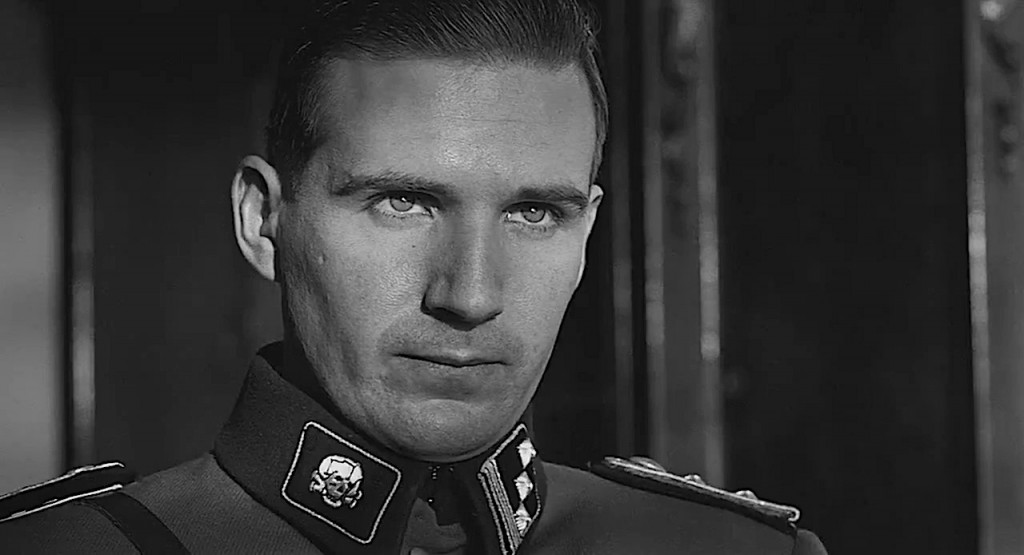
You must be logged in to post a comment.